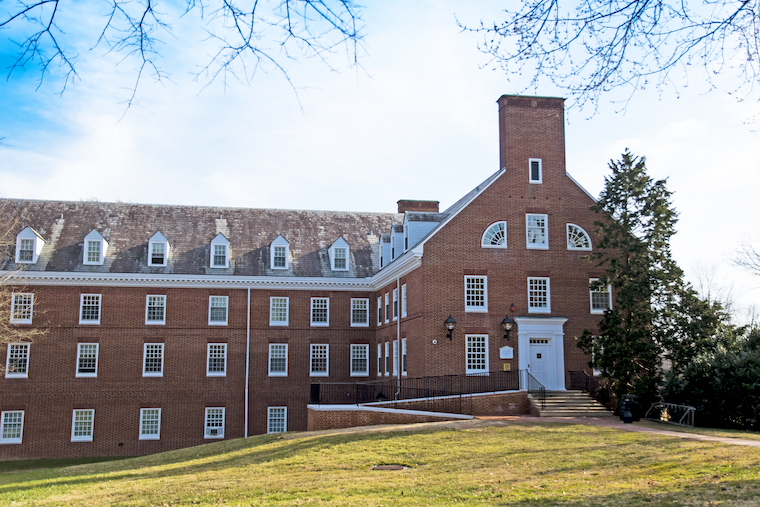Washington College Strengthens Sustainability Efforts with Energy Savings and Recycling Successes
Recent analysis shows College exceeded savings expectations.

Washington College is pleased to report some milestones and successes in its multifaceted approach to energy efficiency, waste reduction, and environmental stewardship across campus facilities that actively advanced its sustainability goals.
A key component was the Energy-as-a-Service (EaaS) agreement with FESCO Energy that the College entered into in 2022. The agreement was designed to modernize campus infrastructure with energy-efficient upgrades, including LED lighting, optimized HVAC systems, and building automation improvements, which were expected to reduce electric consumption by 41%, fuel consumption by 57%, and water consumption by nearly 32%, annually.
Beyond cost savings and improved campus comfort, the EaaS was also projected to reduce the College's greenhouse gas emissions by over 82%, aligning with our commitment to carbon neutrality.
Recent data from FESCO Energy's Measurement and Verification (M&V) analysis demonstrates the project's success. It found that Washington has significantly exceeded its energy savings targets, achieving a 68.5% reduction in electricity consumption and a 51.7% reduction in water usage compared to expectations. This translates to a notable decrease in electricity consumption from 19,390 MWh in FY19 to 12,481 MWh in FY24, exceeding the anticipated savings by 4,099 MWh. These energy savings have resulted in approximately $1.2 million in reduced utility costs.
Complementing these energy efficiency gains, a remarkable recycling rate of over 91% was achieved in the demolition project at 800 High Street. This impressive feat involved the careful removal and diversion of nearly 17,000 tons of materials, including 16,160 tons of crushed concrete and 816 tons of metal, from landfills. The site is currently undergoing a transformation and will house an Innovation Plant for future use.
The College is also enhancing the site's environmental value by transforming the 6.1-acre area surrounding the future Innovation Plant into a vibrant wildflower meadow. This initiative will not only provide a visually appealing landscape for the community, but also create a valuable habitat for pollinators while significantly reducing the need for extensive mowing. The College anticipates annual savings of approximately $15,000 on mowing costs, further demonstrating its commitment to both environmental and economic sustainability as the campus grows.
“These successes underscore Washington College's proactive approach to sustainability,” Assistant Vice President of Facilities Stan Yeakel said. “By prioritizing energy efficiency, minimizing waste, and embracing innovative solutions, we hope to set a positive example for the community and contribute to a more sustainable future for all.”